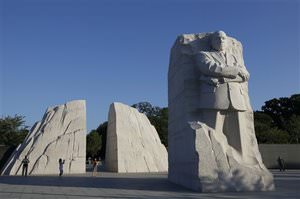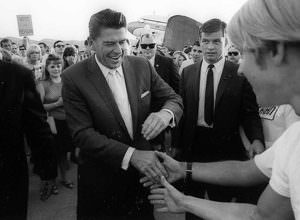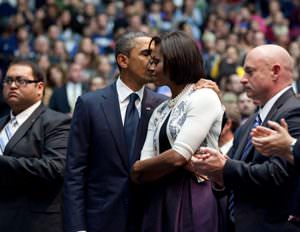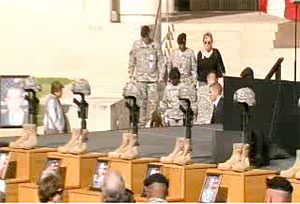MLK Memorial Opens … and Then Has a Shaky Moment
A monument memorializing Dr. Martin Luther King Jr., the first on the National Mall and in other nearby parks to honor an African-American, was officially opened to the public Monday. Within hours, the memorial, along with all other monuments on the National Mall, was closed after an earthquake struck Washington, D.C., and a large area of the eastern U.S on Tuesday. At the time of this posting, officials were not saying when the King memorial would be reopened.
A monument memorializing Dr. Martin Luther King Jr., the first on the National Mall and in other nearby parks to honor an African-American, was officially opened to the public Monday. Within hours, the memorial, along with all other monuments on the National Mall, was closed after an earthquake struck Washington, D.C., and a large area of the eastern U.S. on Tuesday. At the time of this posting, officials were not saying when the King memorial would be reopened.
The memorial was first proposed by members of King’s fraternity 27 years ago and authorized by Congress back in 1996. Those championing the project faced huge financial obstacles (the project was set to announce its fundraising campaign just after 9/11, then came a series of natural disasters and the downturn of the economy) as well as public opposition to their choice of a Chinese sculptor rather than a black artist to create the monument.
The memorial will be dedicated in a ceremony Sunday that is planned to coincide with the 48th anniversary of the March on Washington and King’s “I Have a Dream” speech. The ceremony, during which President Obama will say a few words, is expected to draw huge crowds from across the nation. [On Friday, Aug. 26, organizers announced that because of the approach of Hurricane Irene the ceremony would be delayed until sometime in September or October.] –BF
Your support matters…The Associated Press:
King’s likeness rises a full 30 feet to watch over the memorial landscape. The 1964 Nobel Peace Prize winner stands with his arms crossed, carved from a “stone of hope,” looking toward the horizon. The central theme is King as a symbol of hope emerging from a boulder — a “mountain of despair,” as King said in his 1963 “Dream” speech.
Visitors pass through a narrow opening in the “mountain” to symbolize the struggle for civil rights before entering an open plaza. They won’t discover King’s statue right away. Designers intend for waterfalls to draw visitors to either side of the plaza to first see curving granite walls carved with 14 quotations from King, none of which is from the “Dream” speech — organizers said they wanted to focus on some of King’s powerful but lesser-known words, such as his Nobel acceptance remarks and his “Letter from Birmingham Jail.”
Independent journalism is under threat and overshadowed by heavily funded mainstream media.
You can help level the playing field. Become a member.
Your tax-deductible contribution keeps us digging beneath the headlines to give you thought-provoking, investigative reporting and analysis that unearths what's really happening- without compromise.
Give today to support our courageous, independent journalists.





You need to be a supporter to comment.
There are currently no responses to this article.
Be the first to respond.